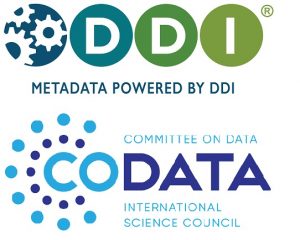 Using the DDI Cross Domain Integration (DDI-CDI) Specification for Describing Data Processing and Provenance
Using the DDI Cross Domain Integration (DDI-CDI) Specification for Describing Data Processing and Provenance
The Data Documentation Initiative Alliance has recently announced the public review of their new specification, DDI–Cross Domain Integration (DDI-CDI). In order to introduce potential reviewers to the parts of the specification which apply to the description of data processing and provenance, a webinar will be held on Weds 9 Dec at 15:00 UTC. The specification will be introduced, followed by a discussion period, with each the webinar lasting for an hour.
Register for the webinar here: https://attendee.gotowebinar.
Register for the related FAIR Data Provenance Session at the FAIR Convergence Symposium for FREE at https://bit.ly/FAIRCONVERGE1 using the event passcode FAIRCONVERGE1
DDI-CDI and Provenance
DDI-CDI is a model-driven specification that is designed to provide support for the wide range of data which are becoming increasingly significant for the Social, Behavioral, and Economic (SBE) sciences, but often come from new sources outside the SBE domain, and often use non-traditional data structures. Such unfamiliar data also demands increased information about provenance, especially the processes by which they were created. Based on the DDI 4/Moving Forward work, DDI-CDI is designed to meet these emerging needs for the integration of data in old and new forms, coming from a variety of domains.
DDI-CDI is integrated with other popular standards and specifications related to provenance, including PROV-O, the Structured Data Transformation Language (SDTL), the Validation and Transformation Language (VTL), and others. Further, it is designed to describe relationships between proprietary processing languages and tools and the data they consume and produce.
Issues around FAIR Data Provenance will also be explored in a session at the International FAIR Convergence Symposium on Weds 2 Dec at 15:00-17:00 UTC https://conference.codata.org/
DDI-CDI and Secondary and Cross-Domain Data Use
Cross Domain (Data) Integration is particularly important for grand challenge research areas that necessarily combine data of many types and provenance, including infectious disease research, disaster risk reduction, resilient cities research, climate change mitigation and adaptation and so on. CODATA sees great potential in DDI-CDI as a contribution to the International Science Council-endorsed Decadal Programme ‘Making Data Work for Cross-Domain Grand Challenges’. Consequently, CODATA through the Decadal Programme will partner with DDI in the public review process, assisting in getting feedback on the specification from different domains and use cases.
As part of a EOSC Co-Creation Project, CODATA and DDI recently held a workshop on ‘Applying DDI-CDI to the EOSC’, which looked in particular at the potential of the variable cascade and the way DDI-CDI deals with provenance information to assist in combining heterogenous data from multiple, unfamiliar sources. The presentations and recording from that workshops are available here: https://codata.org/initiatives/strategic-programme/decadal-programme/ddi-cross-domain-integration-review-webinar-series/applying-ddi-cdi-to-the-eosc/
The DDI-CDI specification is available both as a formal UML model and as an XML syntax representation of that model and is designed to align with both existing DDI specifications and other popular standards. Being model based, it is intended to support a wide range of technology platforms and tools. This webinar will help potential adopters provide critical feedback to make sure that it can meet these goals.
About DDI-CDI
Introduction: https://ddi-alliance.
Public review page: https://ddi-alliance.
Complete download package: https://ddi-alliance.
Announcement at DDI Alliance website: https://ddialliance.org/
